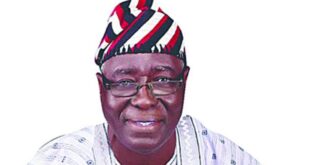BY ABU-SATAR HAMED
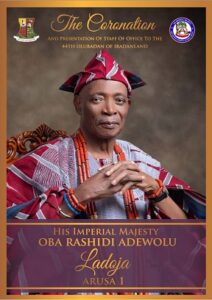 IBADAN, OYO STATE, NIGERIA – Former Oyo State Governor and Senator, Rashidi Ladoja, will be officially crowned on Friday, September 26, 2025, as the 44th Olubadan of Ibadanland at the renowned Mapo Hall, Oj’oba, Ibadan, Oyo State capital.
IBADAN, OYO STATE, NIGERIA – Former Oyo State Governor and Senator, Rashidi Ladoja, will be officially crowned on Friday, September 26, 2025, as the 44th Olubadan of Ibadanland at the renowned Mapo Hall, Oj’oba, Ibadan, Oyo State capital.
The highly anticipated coronation ceremony is expected to draw some of Nigeria’s most influential political figures, including President Bola Ahmed Tinubu, former Vice President Atiku Abubakar, and former Kano State Governor, Senator Rabiu Musa Kwankwaso.
Speaking ahead of the event, Chairman of the Coronation Committee, Chief Bayo Oyero, emphasized that the occasion represented more than a traditional installation – “it is a reaffirmation of Ibadan’s time-honoured, democratic chieftaincy succession system, which has long ensured peace and continuity in the city.
“Oba Ladoja’s ascension is the result of a long and deliberate journey, guided by the wisdom of our ancestors”, Chief Oyero stated.
He noted that Ladoja’s extensive experience – as a former senator, governor and committed grassroots leader – equipped him with the vision and leadership to guide Ibadan into a new phase of development.
Also speaking on the significance of the moment, Commissioner for Local Government and Chieftaincy Matters, Hon. Ademola Ojo, described the Olubadan stool as “a symbol of Yoruba pride and an integral part of Nigeria’s cultural heritage.”
He also praised Governor Seyi Makinde for upholding the dignity of traditional institutions and supporting the coronation process with due respect and honour.
To become the Olubadan of Ibadanland, one must be a member of one of the two principal chieftaincy lines: the Balogun (military) line or the Otun (civil) line.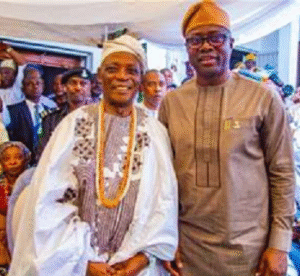
What makes the Olubadan throne particularly unique among traditional rulerships in Nigeria is its highly structured and predictable succession system.
This well-defined hierarchy allows for a seamless and largely dispute-free transition of power. Unlike other traditional systems that often face succession controversies, Ibadan’s system promotes seniority through a gradual ascent within the two ruling lines.
Chieftains progress through several ranks, and only upon attaining the position of Otun Olubadan (civil line) or Balogun of Ibadanland (military line) do they become eligible to ascend the throne.
This time-honoured system – deeply rooted in Ibadan’s history – has helped minimize succession disputes and ensured that the most senior and experienced chief assumes the title of Olubadan.
The Balogun (warrior) line consists of the Ekarun Balogun (the sixth in command), Ekerin Balogun (the fifth in command), Ashipa Balogun (the fourth in command), Osi Balogun (the third in command), Otun Balogun (the second in command) and the Balogun himself who is the highest member of the line.
The Otun (civil) line consists of Ekarun Olubadan, Ekerin Olubadan, Ashipa Olubadan, Osi Olubadan and the Otun Olubadan as the highest-ranking member in the line.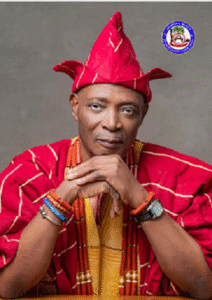
The late Oba Olakulehin, from the Balogun line, waited 38 years after becoming Jagun Balogun before finally ascending the throne.
With his passing, the succession now shifted to the Otun line, where High Chief Rasheed Ladoja, a former governor of Oyo State, was the highest-ranking member.
*Who is High Chief Rashidi Ladoja?*
Born on September 24, 1944, in the Gambari area of Ibadan, Rasheed Ladoja began his education at Ibadan Boys High School (1958–1963), and later Olivet Baptist High School (1964–1965).
He furthered his studies in Belgium, earning a degree in Chemical Engineering from the University of Liège (1966–1972).
Ladoja’s political career began in earnest in 1993, when he was elected to the Nigerian Senate during the brief Third Republic, representing the United Nigeria Congress Party (UNCP) under the Abacha transition regime.
By 2000, he had become a Director at Standard Trust Bank.
In 2003, he was elected Governor of Oyo State under the People’s Democratic Party (PDP) platform, with support from the influential PDP chieftain, the late Alhaji Lamidi Adedibu.
However, their alliance turned sour. By August 2004, a bitter power struggle erupted between the two over political appointments.
This conflict led to serious governance issues and internal party battles.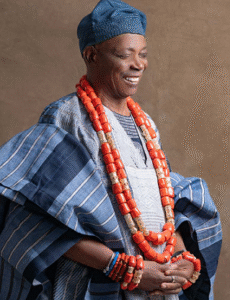
On January 12, 2006, Ladoja was controversially impeached by the Oyo State House of Assembly, and his Deputy, Adebayo Alao-Akala, took over as governor.
However, on November 1, 2006, the Appeal Court in Ibadan declared the impeachment illegal – a decision later upheld by the Supreme Court on November 11, 2006. Ladoja officially resumed office on December 12, 2006.
Despite his return, Ladoja failed to secure the PDP’s ticket for a second term. Instead, he supported the Action Congress (AC) in the 2007 local government elections.
In later years, he contested the governorship again – this time under the Accord Party – in 2011 and 2015, but lost both times to Senator Abiola Ajimobi.
After several political moves, including stints with ADC and ZLP, Ladoja eventually withdrew from active politics to focus on his traditional chieftaincy duties.
On August 12, 2024, the late Oba Olakulehin formally presented the ceremonial beaded crown to High Chief Ladoja – a crown Ladoja had previously declined during Governor Ajimobi’s tenure.
As the 44th Olubadan of Ibadanland, High Oba Rasheed Ladoja had made history as the first Olubadan to have served as a state
governor, bringing a rare blend of political experience and traditional authority to the revered position.
Noted: From all of us at StarTrend International Magazine and Online Platform, we extend our heartfelt felicitations to His Imperial Majesty, Oba Rasheed Ladoja, the 44th Olubadan of Ibadanland.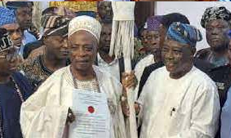
May your reign be marked by lasting peace, harmony, and prosperity.
Kabiyesi ooo!
K’ade pe l’ori, k’bata pe l’ese, k’irukere k’o di abere ooo.
Kabiyesi ooo!
 Startrend International Magazine For Your Latest News And Entertainment Gists
Startrend International Magazine For Your Latest News And Entertainment Gists



